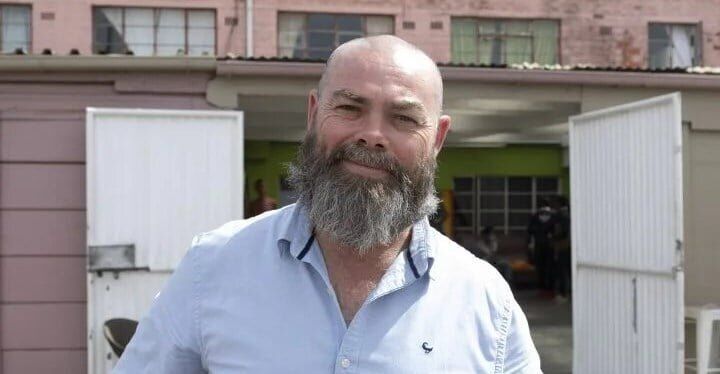#worldenvironmentday - Why Food Systems Must Lead The Climate Conversation
Written by: BizCommunity Editor Save to Instapaper
Ozzy Nel, Chief Operating Officer, SA Harvest
From food waste to climate action
South Africa wastes more than 10 million tonnes of food every year. This food, often still edible, is dumped in landfills where it emits methane, a greenhouse gas 28 times more harmful than CO₂. At the same time, over 18 million South Africans face food insecurity daily.
This is not a crisis of scarcity, but of distribution. The environmental fallout of this imbalance includes wasted water, energy, land, and logistics – a silent climate threat that is often hidden in plain sight.
SA Harvest was founded to challenge this broken system. But we’re not a food charity. We’re a logistics disruptor, an environmental actor, and a data-driven social innovator.
Our model of systemic sustainability is simple in principle, but enormously impactful in its execution: intercept surplus food before it becomes waste, redirect it through a climate-aligned supply chain, and deliver it – free of charge – to vetted community organisations across the country. All of it tracked, measured, and optimised for environmental impact.
Reverse logistics for good
Our national fleet and cold-chain infrastructure span Johannesburg, Durban, and Cape Town. But what makes our model unique is its environmental intelligence. We optimise existing “empty legs,” warehouse space, and underutilised resources to scale impact without scaling emissions. In fact, despite recent fleet expansions, our environmental footprint has remained stable — a testament to the power of shared logistics and smart supply chain integration.
Our partnership with Vector Logistics, for instance, has rescued 329 tonnes of food and prevented 322 tonnes of CO₂ emissions — just one example of how aligning commercial logistics with humanitarian goals delivers outsized results.
Source: Supplied
Beyond the plate: food rescue as systemic innovation
Our impact goes beyond the plate. Each kilogram of food rescued represents fewer emissions, less plastic packaging in landfills, and stronger, more resilient communities.
Our investments in state-of-the-art greenhouses and dehydration technologies help prolong shelf life and improve year-round supply in vulnerable areas. Meanwhile, our partnership with Regenize brings circular economy principles to the grassroots, empowering beneficiaries to earn income through plastic recycling.
This is what we call systemic sustainability: a logistics-driven model where food rescue is not just about feeding people, but about transforming the very systems that created scarcity and waste in the first place.
Built to scale, built to last
Since 2019, we’ve grown from a single vehicle to a national operation that has delivered over 92 million meals, rescued more than 21.4 million kilograms of food, and prevented over 52,393 tonnes of CO₂e emissions. These aren’t just numbers. They are proof that sustainable food systems aren’t a future concept — they’re already here, if we’re willing to scale them.
A call for coordinated action
True sustainability can’t happen in silos. That’s why we’re calling on logistics providers, corporates, funders, and government partners to join us. Our systems are designed to be collaborative, data-driven, and transparent, ready to integrate with broader ESG goals and national climate targets.
On this World Environment Day, let’s move beyond pledges. Let’s build systems that regenerate, empower, and deliver. Together, we can drive systemic change for a sustainable future — one rescued meal, one rerouted truck, one community at a time.
We submit and automate press releases distribution for a range of clients. Our platform brings in automation to 5 social media platforms with engaging hashtags. Our new platform The Pulse, allows premium PR Agencies to have access to our newsletter subscribers.
Latest from
- Rainbow Celebrates Women QA Leaders Committed To Nourishing The Nation Safely
- Khayelitsha Clinic Increases Sterilisation Drive To Reduce Pet Overpopulation And Disease
- South African Central Bank Assesses Minimal Impact From US Tariffs On Trade And Jobs
- Ammat Global Resources Drives Congo Oil Growth With Bold Targets At African Energy Week
- FAO Reports 1.6 Percent Monthly Increase In Food Price Index Led By Vegetable Oils
- Business Partners Highlights Urgent Need To Bridge Gender Finance Gap In Entrepreneurship
- Mustadafin Foundation Champions Young Single Mothers Through Empowerment Initiatives
- New Pnet Insights Show Gender Divide Continues In Wages And Senior Workplace Roles
- Neema Foundation Launches Registration For 9th Silent Walk And Run To Empower Deaf Community
- Spier Launches Private Villas Featuring Heated Pools And Outdoor Entertainment Areas
- Labour Court Clarifies Political Parties Should Avoid Acting As Proxy Trade Unions
- Expert Advice On Transforming Channel Partners Into Powerful Brand Advocates
- LG Online Brand Shop Hits One Year Milestone With Strong South African Customer Growth
- Penquin Celebrated For Creative Excellence In Africa By Smarties 2024 Business Impact Index
- Sentech Welcomes Clarinda Simpson As CFO While Announcing Leadership Restructuring
The Pulse Latest Articles
- Reimagine Your Daily Ritual: Meet The Shower That Does More Than Just Cleanse (August 4, 2025)
- Xlink: An Avant-garde, Purpose-driven Fintelco Driving Digital And Payments Interoperability On The African Continent (August 1, 2025)
- Success Is Just The Beginning For This South African Brand (July 31, 2025)
- Embassies Business Fair And Conference 2025 To Fast-track Africa’s Global Economic Integration (July 31, 2025)
- There Is A Small Business Funding Readiness Crisis In South Africa (July 30, 2025)
